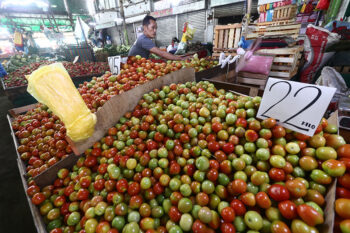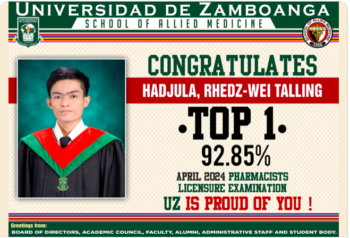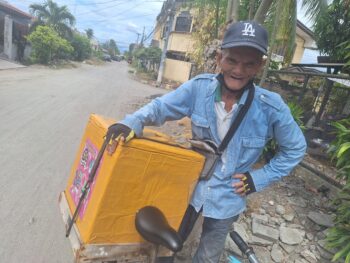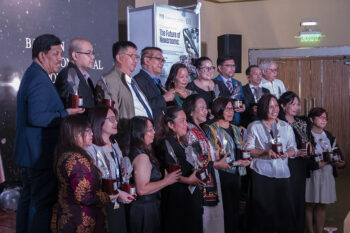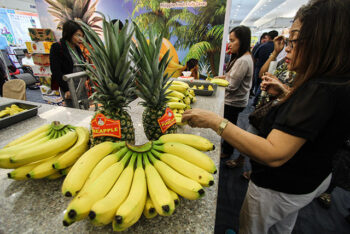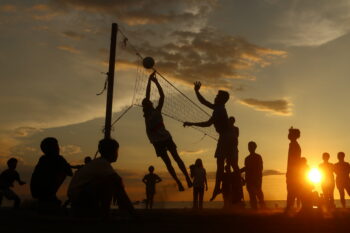GENERAL SANTOS CITY (MindaNews / 4 Aug) – With his first State of the Nation Address last July 25, President Rodrigo R. Duterte broke protocol, precedents and tradition. As he entered the Batasang Pambansa (National Assembly) session hall – his barong Tagalog sleeves rolled up and hands in his side pockets flanked and followed by his security – he was not accorded a red carpet welcome. He shook a few hands on the sides and went up the speaker’s platform with the Senate president and House speaker.
On his own behest, there was no glitzy fashion show from women members of Congress and guests although a countable few still came in fashion. As usual, the gallery was full; but there were no live or audio-visual presentations started by President Fidel V. Ramos (“Mang Pandoy”) and carried on creatively by all his successors to demonstrate with dramatic effects some points of the address.
The address was most innovative.
At the start, it was strictly on prepared well-polished English script, later with ad libs. Then it shifted to extemporaneous “story-telling” tone in English and Tagbilish – meaning, English mixed with Tagalog in Bisaya construction with some Bisaya vocabulary like “mabubuang” for “maloloko”. This was a radical departure from the past.
From President Manuel L. Quezon to President Ferdinand E. Marcos, SONAs were in oratorical English. President Corazon C. Aquino and President Ramos spiced their addresses with little Pilipino or Tagalog in conversational tone. President Joseph Estrada and President Gloria Macapagal-Arroyo were more liberal in interspersing Taglish (Tagalog-English mix) into their addresses. President Benigno Simeon C. Aquino III used well-polished Tagalog only.
The Address
Prior to July 25, Presidential Communication Secretary Martin Andanar described Duterte’s SONA as a 38-minute tear-jerker. He said he was near tears while reading it. He must have been referring to a portion of the prepared script describing drug or disastrous death scenes. But the President did not cooperate with his speech writers. That portion was lost in the ad libs and extemporaneous Tagbilish that extended the SONA to 98 minutes, 162 paragraphs as actually delivered with 93 “(applause)” included.
SONA 2016 has three versions – first, “as delivered” published by The Philippine Star; second, “sourced from the Presidential Communications Office”, published by Philippine Daily Inquirer; and, third, one published by The Official Gazette.
The second and third versions contained exactly the same messages as the first; but they slightly differ in some aspects. The second and the third made a few deletions in the extemporaneous part of the first; the second – first partially published by PDI (July 25) “to be continued” – broke up long extemporaneous paragraphs in the first to have 240 paragraphs including six “double prints”.
There are varied and interesting analyses and comments of SONA 2016, based on which version does not matter – our own notes based on the first version:
- To students of San Carlos University in Cebu, Duterte’s SONA was “authentic” reflecting his caring and sincere personality (Rappler report); “unconventional, entertaining and inspiring” (The Manila Times editorial); and, as delivered, it “defied expectations” (The Philippine Star report).
- PDI columnist Randy David (Public Lives: Understanding Duterte) described the SONA as of “two speeches” – the first, “a recitation of what appeared to be a hastily assembled action agenda for the first 100 days of the new administration”; the second, “the one that sparkled (with ad libs and extemporizing), was that of the President speaking to his prepared speech, unburdening himself of the mixed emotions that had come to him after his unexpected rise to the presidency.”
- The Manila Times columnist Homobono A. Adaza wrote (“PDU30’s first SONA: Clash of two worlds”): PDU30, the President, read the prepared script along with the teleprompter haltingly losing his charisma. It was when DD (Digong Duterte), the real Duterte, ad libbed and extemporized that he got “the thunderous applauses of approval”. In this conflicting world, DD wants things done, like his anti-drug war, that are in conflict with the Constitution and laws that bind PDU30.
- PDI’s retired columnist Amando Doronila, now residing in Canberra, Australia, in his 11-paragraph commentary, “Sona: big talk, no programs”, devoted all the first nine paragraphs criticizing Duterte’s anti-drug campaign then closed with the last two: “He also pledged that his administration ‘shall implement a human approach to development and governance, and to improve the people’s welfare in the areas of health, education, adequate food and water, housing, etc.’”, asking: “Where’s the blueprint for all these programs?”
- Peter Wallace, an Australian businessman, who became a Filipino citizen by an act of Congress in October 2015 after having lived in the Philippines since 1975, in his PDI column “Like It Is”, soberly analyzed SONA 2016 in his “Duterte’s Sona: finally beyond promises”. He looked at the SONA not as “a State of the Nation Address” but as “a State of Action into the Future”.
He cited five things Duterte had already done, among them the institution of freedom of information – promised by past presidents but never done – through an executive order.
buy zoloft online https://coastalortho.com/image/jpg/zoloft.html no prescription pharmacyHe enumerated other items in Duterte’s action agenda which he described as “not grandiose plans that never get done and not promises that are not kept, but a list of things to be done”.
- “Solons give DU30 high marks for first Sona” (The Daily Tribune report); and some “Bishops laud Duterte’s SONA” (The Philippine Star report).
- Dindo Manhit (com, July 26: “Analysis: Deconstructing Duterte’s clamor for radical change”), sees in the SONA six strong features to be expected of the Duterte presidency: strategic leadership; transparent and accountable government; responsible public services; strong rule of law and stable policy environment; preference for the poor and inclusive growth; and defending territorial integrity and maritime rights.
Manhit is president of Stratbase-Albert del Rosario Institute (ADRi) for Strategic and International Studies.
- Duterte’s peace initiatives with the Moro rebels and the Communist insurgents were well received; so were his plans to stop corruption, to reduce taxes, to streamline public services and to improve the life of the poor. However, he was severely criticized for the violation of human rights in his war against drug menace.
Major Issues
President Duterete’s messages may be divided into non-issues and major issues.
Non-issues are items in the action agenda which are important to good governance, the country and life of the people and are not controversial. They are problems or concerns that with strong political will on the part of the government are not difficult to solve or provide under existing laws and human and financial resources; or if the necessary laws and resources are lacking, these can be provided.
Major issues are items that are vital to the welfare of the country and the people but are controversial in the light of the Constitution, existing national policies and laws, and conflicting interests of different political, economic, cultural, ethnic and institutional groups. SONA 2016 manifests four major issues: (1) war against criminality and drug in disregard of human rights and rules of law; (2) federalization; (3) negotiating peace with the CPP/NPA/NDF; and, (4) implementing the peace agreements with the Moro rebels.
Of the 162 paragraphs of the SONA, 35 pertain to the major issues of which 22 are on war against drug – the most controversial of the major issues as shown in the 20 reports and commentaries we have compiled from five media entities on-line. We shall comment on the major issues next issue. (To be continued.)
(“Comment” is Mr. Patricio P. Diaz’ column for MindaViews, the opinion section of MindaNews. Mr. Diaz is the recipient of a “Lifetime Achievement Award” from the Titus Brandsma for his “commitment to education and public information to Mindanawons as Journalist, Educator and Peace Advocate. You may e-mail your comments to patpdiazgsc@yahoo.
com.)

